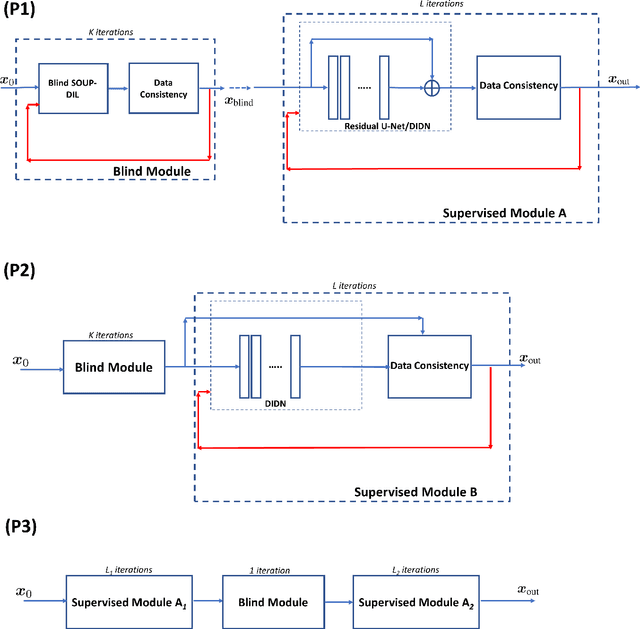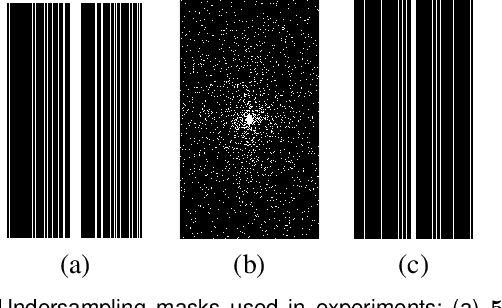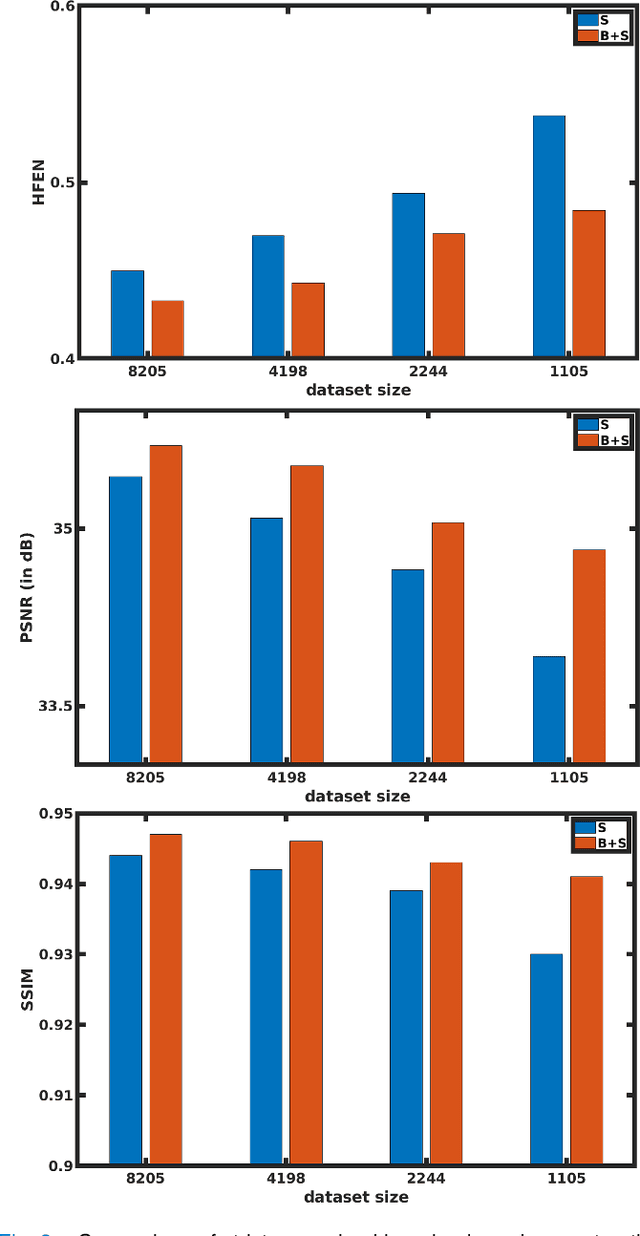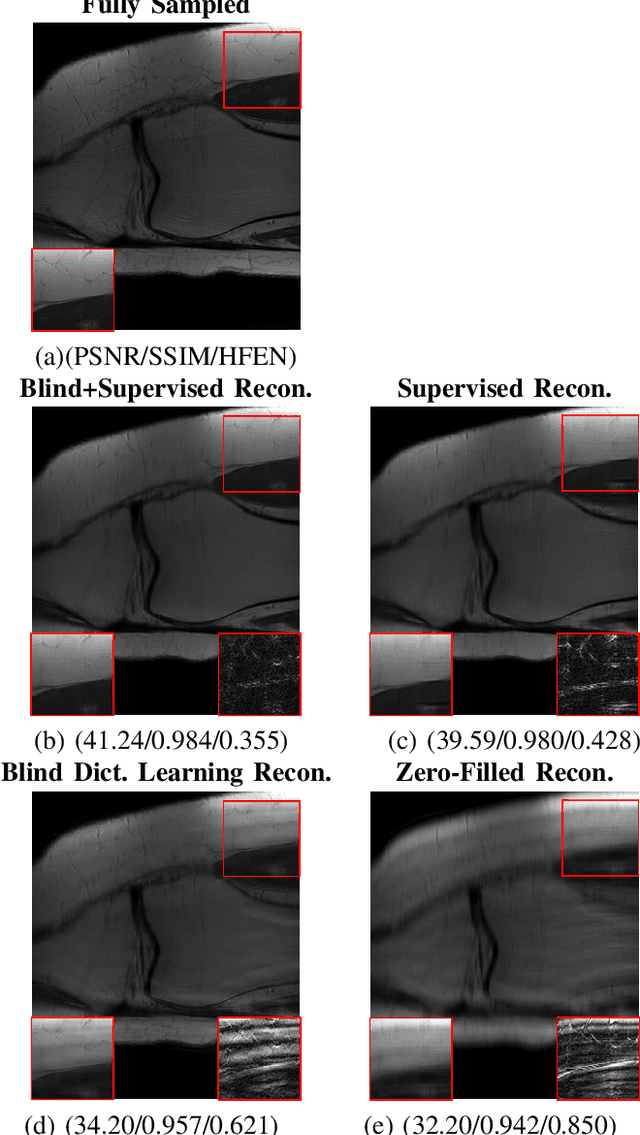Blind Primed Supervised Learning for MR Image Reconstruction
Paper and Code
Apr 11, 2021



This paper examines a combined supervised-unsupervised framework involving dictionary-based blind learning and deep supervised learning for MR image reconstruction from under-sampled k-space data. A major focus of the work is to investigate the possible synergy of learned features in traditional shallow reconstruction using adaptive sparsity-based priors and deep prior-based reconstruction. Specifically, we propose a framework that uses an unrolled network to refine a blind dictionary learning-based reconstruction. We compare the proposed method with strictly supervised deep learning-based reconstruction approaches on several datasets of varying sizes and anatomies. We also compare the proposed method to alternative approaches for combining dictionary-based methods with supervised learning in MR image reconstruction. The improvements yielded by the proposed framework suggest that the blind dictionary-based approach preserves fine image details that the supervised approach can iteratively refine, suggesting that the features learned using the two methods are complementary
 Add to Chrome
Add to Chrome Add to Firefox
Add to Firefox Add to Edge
Add to Edge